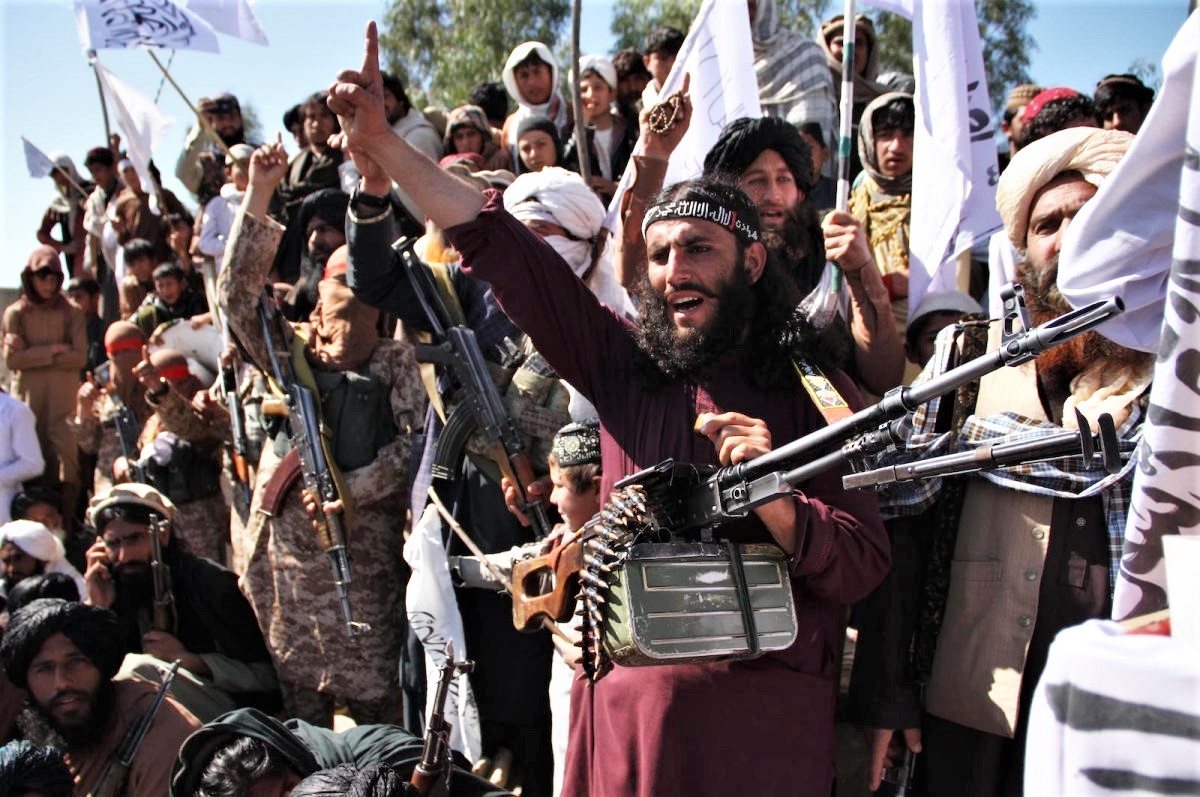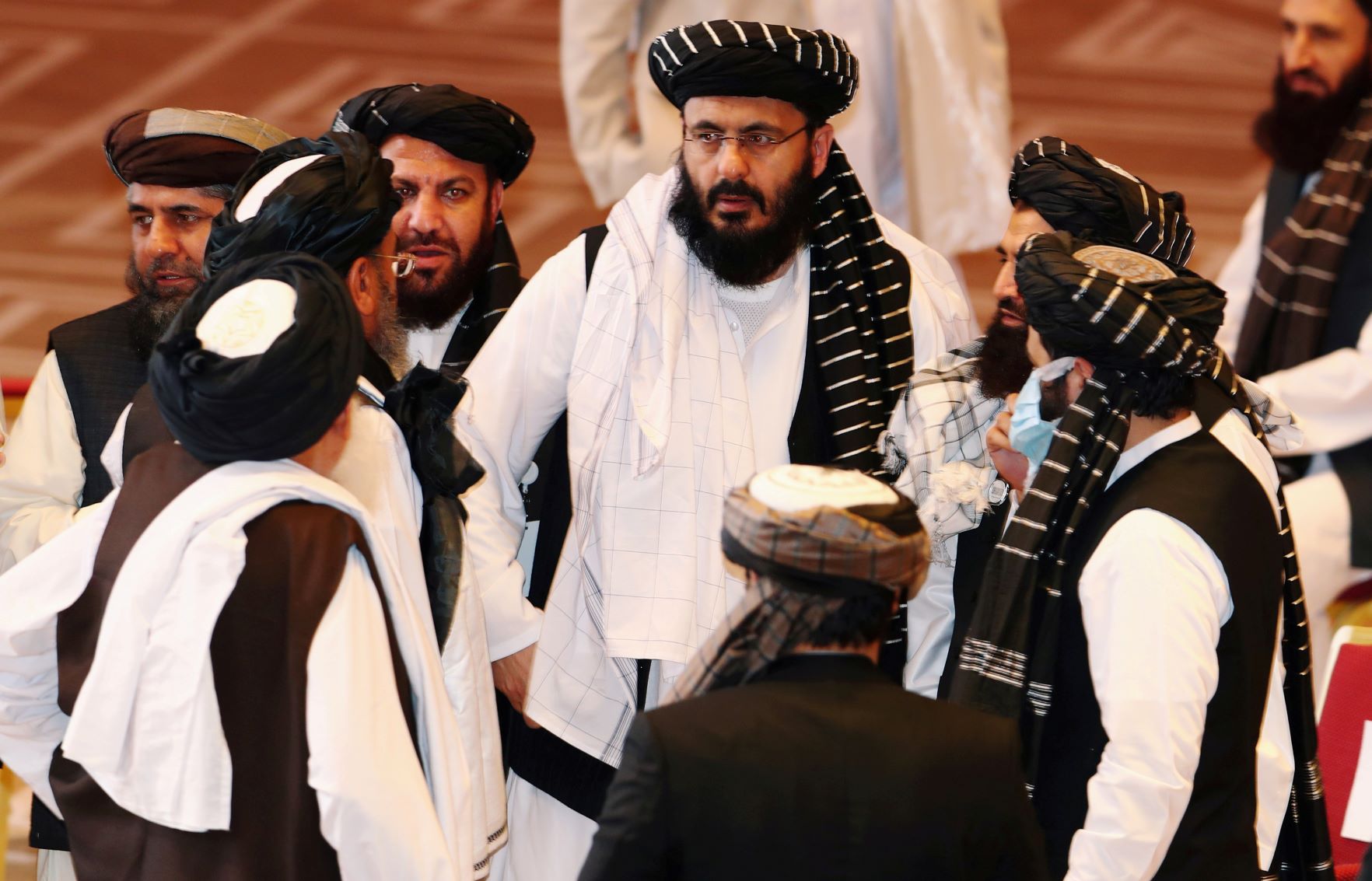Afghanistan is an enigma of sorts. Its geo-political vulnerability has kept it on the tenterhooks and literally in a state of war for more than four decades. Umpteenth efforts to find a solution in the war-weary country have ended up in failures, as none were in resonance with the aspirations of its diverse ethno-lingual society. The country not only needs a peace formula but also an inherent mechanism, wherein indigenous stakeholders agree to work for nation-building, and never to resort to alignment with foreign elements for furthering their vested interests.
The deal signed in February 2020 in Doha, Qatar, between the United States and the Taliban is a good beginning. It is so because they constitute two main stakeholders in the conflict. The Afghan establishment and the sitting government of President Ashraf Ghani, luckily, are on the same page. It is, nonetheless, a great convergence of interests. What remains to be seen is its implementation. Many such efforts have gone down the drain because second-thoughts set in well before the ink got dried.
Let’s take a look at the salient features of the US-Taliban deal
*The Trump administration promised to withdraw US and NATO troops from Afghanistan within the next 14 months i.e. by May 1, 2021.
*The Taliban pledged to play the gentleman’s role and vowed NOT to allow Al-Qaeda and other militants, including ISIS, operate in areas under their control.
*Likewise, the Taliban agreed to abide with peace negotiations in order to find a broad-based “political” solution.
*The Taliban also agreed to stop attacks on international military forces.
*As a precondition to engage the Afghan government, the Taliban demanded release of their prisoners.
Here is the outcome in the last one year
*President Joseph Biden’s administration is still reviewing the deal stuck by his predecessor thus giving way to misgivings on its practicability.
*The Taliban are holding their guns. Nonetheless, skirmishes with the Afghan forces have been reported.
*No blueprint is in sight for withdrawing foreign forces by the May 1, 2021 deadline.
So what’s next?
Let’s take a bird’s view to the lingering issue, and see where the problem lies. Afghanistan’s biggest problem is that the country’s erstwhile equilibrium is lost. It was based on a mechanism wherein rich tribal traditions were respected; and ethnic and lingual groups had enough space to operate in state affairs, even though the monarchy reigned supreme.
That was shattered as the Soviet’s moved in in 1979 and since then the country is a theatre to shenanigans of power politics. Regional and international players have had a field day in undermining its sovereignty, as well as exploiting its resources.
The reason why any peace deal up till now has not been successful is because it has failed to address its cultural mosaic and take care of its bruised sentiments. Thus, a valid argument in the societal corridors is whether Afghanistan should re-strike a new balance between neo-democracy and tribalism? The jury is out on it!

Is it a New Era?
The manner in which the Taliban and other religious cadres are slowly and gradually agreeing to quasi-Westminster decorum of governance speaks of a new realisation; and the openness that tribalism is embracing. This needs to be cashed upon. The Western forces and all those who lecture on peace and democracy in the region, should encourage Afghans to settle down on their own and walk away from the war-torn country in humility.
All said and done, the South-West Asian country is desperate to clinch a power-sharing mechanism, afresh. Its extra-territorial stakeholders namely, Pakistan, Russia, China, Iran, India, the United States and the Central Asian states have not lived up to their expectations. The country is in an internal power struggle laden with foreign contours. The United Arab Emirates, Saudi Arabia and Qatar also have come to acquire a unique role by virtue of their monetary clout, as well as the influence they have had traditionally. It may be pointed out that the Taliban’s first government was recognized only by Islamabad, Riyadh and Abu Dhabi.
Pakistan’s role:
So in this complicated scenario, it is very difficult to tread a single line of action. Perhaps this is why Pakistan, which has suffered the most in the conflict alongside Afghanistan, is conscious of the fact that the Doha deal should not falter. Islamabad had played a pivotal role in brokering this historic consensus between the Taliban and Washington.
Pakistan’s Ambassador to Afghanistan Mansoor Ahmed Khan, while lecturing an elite audience at the Islamabad Policy Research Institute recently, said that though Pakistan is “not a party to the deal”, it has played a vital role in it. He illustrated that Islamabad eagerly looks forward to an intra-Afghan political consensus, and this “speaks in volumes our sincerity to stay aloof from meddling.”
Which is why Pakistan’s Ambassador to the United States, Asad Majeed Khan told the State Department that Washington should not decide unilaterally on any extension of the May 1 deadline, as it could lead to a breach of understanding. Both the envoys’ points are well-taken.
Here lies the catch, as pointed out by former foreign minister and retired ambassador, Inam-ul-Haque. He says, “Withdrawal of foreign troops is not confined to 2,500 American combat soldiers alone, but it also entails to more than 20,000 civil-military contractors who are actively involved in Afghanistan”. The White House is in need of spilling its beans to ensure that inherent irritants are addressed amicably.
Last but not least, the Pakistan Army too had come up with a startling role in its endeavour to see permanent peace in Afghanistan. Director General of the Inter-Services Public Relations, Major General Babar Iftikhar sounded the policy loud and clear, as he said that Pakistan will not support any military takeover by the Taliban. “It’s impossible for the Taliban to recapture Kabul and that Pakistan would support them. It isn’t going to happen,” the army spokesperson remarked.
This is more than enough to put to rest conspiracy theories being associated with Pakistan’s role in Afghanistan, and provides an impetus to the Doha Deal between Washington and Taliban militia.
Army Chief General Qamar Javed Bajwa and Director General of Inter-Services Intelligence (ISI) Lt Gen Faiz Hameed took a leap forward as they met Commander Bahrain National Guard, Field Marshal Mohammed-bin-Isa Al Khalifa, and Bahraini National Security Adviser Major General Shaikh Nasser bin Hamad Al Khalifa, assuring them that efforts aimed at moving forward a stalemated peace process in Afghanistan are “progressing in a very positive direction.” These comments came in the backdrop of US Central Command Chief General Kenneth McKenzie’s visit to Pakistan, wherein he also met the army Chief.
Time to reciprocate!
Notwithstanding the reservations that the ruling dispensation in Kabul may have against the Taliban’s role in any future power-sharing, or the overt and covert influence of Pakistan in brokering a deal at the behest of Americans, the reality is that space has to be created to make it a pluralistic set-up that comprehensively addresses the political, security and traditional aspects of Afghan people.
This is where dawns the realization that Washington should not indulge in delaying tactics in vetting the deal signed by the Trump administration. The Pompeo-Pakistan undercurrents had successfully brought the Taliban on the same page, and it should see the light of the day.
The United States is planning to request the United Nations to convene a meeting of the foreign ministers and envoys from Russia, China, Pakistan, Iran, India, and the US so that the regional countries could develop a unified approach for supporting the peace process.
Likewise, Moscow all of a sudden has come up with its own initiative for brokering a solution, and invited Pakistan to have a say in it. Such fissures and second-thoughts are understandable in real-politick! But stretching out too much is tantamount to opening a Pandora Box. It might lead to the derailing of the Doha consensus.
Walk the Talk
Washington’s plans are, indeed, to build on the good-will attained in Doha with the Taliban. At the same time, the Biden administration is grossly engaged with the government in Kabul to strike a consensus on power-sharing. This is valued diplomacy, wherein the State Department is taking both the sides along. Likewise, a seven-page “discussion draft of a peace agreement” has set the ball rolling, hinting towards “a transitional Peace Government in Afghanistan”.
Retaining Zalmay Khalilzad as the envoy for Afghanistan is a master-stroke from the Biden administration. Biden has exhibited his farsightedness in institutional decorum of diplomacy. Khalilzad has now been tasked to push harder to find an amicable solution to the four decades old conflict. The good point is that Kabul and Islamabad have developed a ‘working equation’ with his approach.
It goes without saying that Pakistan and other stakeholders’ role should be of honest brokers. None should try to become a party to any future nomenclature of governance in Afghanistan. Such misadventures in the past that rode on whims and wishes of ‘personalisation’ had put the region, and Afghans, in a mess. Complete withdrawal of combat troops and contractors is sine qua non for creating a conducive environment for peace, security and nation-building. Time to put an end to guns and gossip! Only then can the region inch towards connectivity, peace and development.





